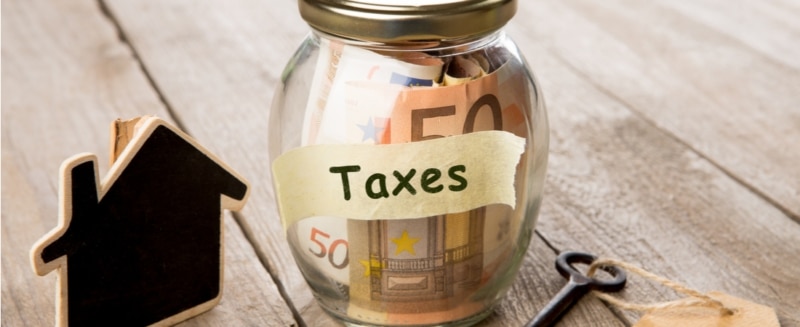Quit claim deed tax implications can come in many forms. Selling a house with multiple owners can be tricky when paying taxes.
Q: I own a house with my brother that we bought for $243,000. We now plan to sell it for about $323,000. My brother lived in it until last year and then rented it out.
My tax bracket is very high and his is low. Since he was living in it, I have decided to quit claim my interest to him because I do not want the profit or the additional tax implications that will arise from the sale. He paid the mortgage on this home for several years, so really he should be the one to gain from the sale.
But I want to ensure that this quitclaim move does not have negative tax implications for either one of us.
A: Given your high income tax bracket, we hope you’re working with a good accountant that can walk you through your situation. Before you sign anything, we suggest you sit down with your accountant before going down the quit claim road.
While you purchased the home for $243,000 and you’d now sell it for $323,000, the $80,000 profit doesn’t mean either of you would pay that much in federal income taxes. You’d have to understand the cost basis of the home to determine the true profit.
The cost basis includes the cost of purchase, the costs of sale (like closing costs and any real estate sales commission) and the cost of any capital improvements you put into the property during your ownership. Add everything together and then subtract that number from the sales price to get the profit.
If we assume you incurred about $5,000 in costs when you purchased the property, and you had $25,000 in costs of sale, and you and your brother put in $30,000 in capital improvements while you owned the home that would cut your profit down to about $20,000. Given that your brother owned the home as his primary residence, he wouldn’t have to pay tax on the first $250,000 in profits. Presumably if you and he own the home equally, you’d end up paying tax on about $10,000, assuming the numbers in this example are true.
There are quite a number of permutations to your situation. If we assume that you will have $80,000 in profit from the sale and you owned the home with your brother, then the question is who took advantages of the deduction for mortgage interest, real estate taxes and any other tax benefits during the time the home was owned by the two of you.
If you took tax benefits and claimed an ownership in the home, it would be hard for you to now claim that you never had any ownership interest in the home. Just because you want to avoid paying taxes on the money and you want your brother to benefit from the sale would not give you the right simply to transfer the home to your brother without any tax consequences to you.
A good tax accountant can walk you through your options, see what positions you’ve taken with the IRS in the past and determine what position you can take now when it comes to selling the home.
Presumably, if you assisted your brother in buying the home by placing your name on the title and signing the mortgage because he couldn’t afford or couldn’t get a loan on his own and your brother treated the home as his own, paid all of the expenses for it, including the mortgage, real estate taxes, insurance and put in all the maintenance costs and took all of the tax benefits, you could argue that your ownership interest in the home was to assist him in obtaining financing for the home but you never truly intended to benefit from the profits on sale nor to take any of the tax benefits during the time you and he owned the home.
This situation isn’t unusual and we are not aware of the IRS viewing a person like you as a taxpayer responsible for payment of the profits on the sale of the home. The question for you is whether you fall into this category or not. Your tax professional should be able to help you out.







I have a similar issue and having trouble getting answers for a property in Virginia. My situation is my mother (sole owner) died and left her house to my step dad via life estate without listing heirs after his death so he inherited the house and it became part of his future estate. My stepdad in turn died and left his entire estate to his kids which included my mothers home. Long story short, his kids have been gracious to give the house back to my sister, brother and me via a quit claim deed. The house was bought for about $16k in 1961 and should sell for about $160k now. Since my siblings and I didn’t actually inherit the house, what are our tax implications upon our sale of the property after it is quit claim deeded to us?
Did you ever get a clarification of your, if any, tax liabilities from the sale of the property?
I have been paying property takes on a home owned by my grand parents and my parents house as well. the house is still in my parents name , and I have 8 siblings . one of which is disabled and lives in the family house of which i’m the custodian of care for him and the property. the other home is a 110 year old cypress home built by my grand father. does this justure of either property gives me right to ownership.?